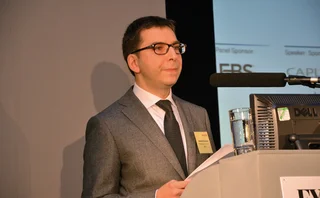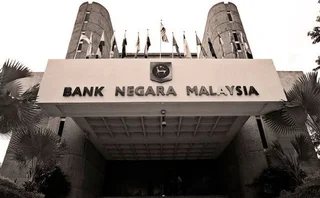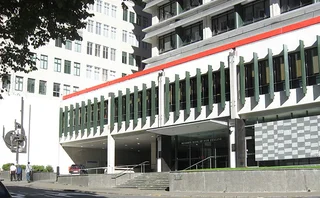
Derivatives both a help and a danger, says BoE deputy governor
Derivatives are both a help and a danger to global financial stability, according to the deputy governor of the Bank of England, Andrew Large.
He said the world was sometimes portrayed as being split into two camps. “The bullish view is led by governor [Alan] Greenspan [of the US Federal Reserve]," said Large, and the bearish camp is led by Warren Buffet - the billionaire investor who has branded derivatives a “time bomb”.
“My view would be that both schools of thought are right,” said Large.
He was speaking on the challenges involved in financial stability oversight, his special area of responsibility at the Bank of England. One of the biggest changes in this field, he said, is that “the degree of complexity and interconnectedness has increased dramatically in recent years". He said these were due to market liberalisation, technological advance and the development of new instruments for transferring risk, all of which brought new benefits and threats.
“The complex and diverse operations of hedge funds can help to arbitrage away pricing mistakes, and to integrate financial markets,” he said. “But they also raise new questions for financial stability oversight."
He also warned of the potential “hazards” of banks' reliance on computer modelling for their risk management. He said these models are only as good as the assumptions on which they are based, and can give “false reassurance” that there will enough liquidity in times of crisis.
Large said the role of central banks and regulators was to “think about what could go wrong and to be ready accordingly".”
“We cannot and should not aspire to a zero-risk solution, but we do need to be prepared to take measures to restore confidence if things go wrong,” he said. He added that the Bank of England would always consider bailing out institutions that get in trouble - as a last resort - because confidence in the system was in the interest of society as a whole.
Large joined the Bank of England in September 2002 from Barclays, where he was chairman of the board risk committee. Before that he had been chairman of the Securities and Investments Board, the predecessor of the Financial Services Authority.
Only users who have a paid subscription or are part of a corporate subscription are able to print or copy content.
To access these options, along with all other subscription benefits, please contact info@risk.net or view our subscription options here: http://subscriptions.risk.net/subscribe
You are currently unable to print this content. Please contact info@risk.net to find out more.
You are currently unable to copy this content. Please contact info@risk.net to find out more.
Copyright Infopro Digital Limited. All rights reserved.
As outlined in our terms and conditions, https://www.infopro-digital.com/terms-and-conditions/subscriptions/ (point 2.4), printing is limited to a single copy.
If you would like to purchase additional rights please email info@risk.net
Copyright Infopro Digital Limited. All rights reserved.
You may share this content using our article tools. As outlined in our terms and conditions, https://www.infopro-digital.com/terms-and-conditions/subscriptions/ (clause 2.4), an Authorised User may only make one copy of the materials for their own personal use. You must also comply with the restrictions in clause 2.5.
If you would like to purchase additional rights please email info@risk.net
More on Central banks
Global investment outlook: 2026 and beyond
Broadening, steepening and weakening: Franklin Templeton’s top investment ideas for 2026 and beyond
Central bank watch: Biased to ease, for now
A mid-year review of the monetary policy outlook for G10 central banks, India, China and South Korea
Adopt FX code or face regulation, warn central bankers
Global code of conduct must be adopted, Schiavi and Debelle insist
Malaysia central bank: credit reporting could unite Asean markets
Asean Economic Community faces challenges, says deputy governor Muhammad bin Ibrahim
BoE's Carney: liquidity support for CCPs is a 'last-resort option'
BoE governor insists clearing houses must have enough liquidity to cope with default of two big member firms
BoE deputy governor Paul Tucker quits after 33 years
Deputy governor is bound for academia in the US after helping with transition to new Carney regime
Local regulators push for consistent standards across Asean region – Thai SEC interview
Underpinning the integration of regional capital markets is a major concern for Vorapol Socatiyanurak, secretary general of Thailand's Securities and Exchange Commission
New governor signs revised policy target agreement in New Zealand
The Reserve Bank of New Zealand’s policy targets agreement will come into effect on the same day Graeme Wheeler takes over as governor; document includes "stronger focus" on financial stability







